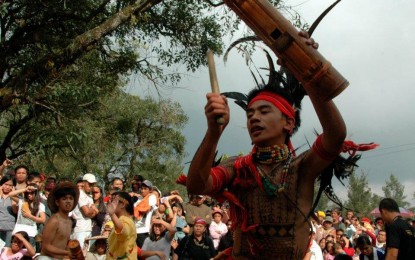
Indigenous peoples' community. (PNA file photo)
MANILA – The National Commission on Indigenous Peoples (NCIP) on Friday said it is pushing for the development of IP communities as food production sites amid the enhanced community quarantine against the coronavirus disease 2019 (Covid-19).
NCIP Commissioner Allen Capuyan, in a statement, said they are discussing this with the Department of Agriculture (DA) to ensure “food self-sufficiency per community”.
“There is an urgent need for massive food production in every IP community areas to offset the limited movement of goods to other provinces and vice versa plus creating food self-sufficiency per community,” he said.
Capuyan added that the discussion with Agriculture Secretary William Dar will soon materialize as the commission is now drafting a memorandum circular for the measure.
“It’s time that customary laws and practices of resilience be enhanced for Indigenous Cultural Communities (ICC) for survivability during (the) pandemic,” Capuyan said.
The act, he added, aims to lessen the public’s burden amid the lockdown and at the same time empower IP communities in times of crisis.
“Currently, local chief executives are still bringing up to the mountain areas the food requirements when it can actually be produced on the site,” he said.
The NCIP’s Office on Socio-economic and Special Concerns (OSESSC) will supervise, monitor and consolidate all reports and compliances.
Early this year, the DA in Davao Region urged an IP community in an upland area of Compostela town in Davao de Oro to consider agricultural ventures with investors to maximize the potential income from their ancestral land.
DA 11 director Ricardo Onate Jr. reached out to Matigsalog IP officials Datu Sirano Mambay-an, and Benito Baylonsanon of Kauswagan Side 4 Farmers Association to discuss possible crops for development and the benefits of partnering with agribusiness corporations, citing additional income from profit-sharing, lease payments, and employment opportunities.
Oñate assured the IP leaders that “inclusive agribusiness” is possible with the monitoring and support of the government.
“The government should be there to help and ensure that IP communities will be accorded with a just and equitable share in the development of their areas,” he said.
Among the identified potential crops are different banana varieties, cassava, cacao, robusta coffee, black pepper, fruit trees, and upland rice.
The DA-11 also conducted soil analysis in the area, located about 500 meters above sea level. (PNA)
